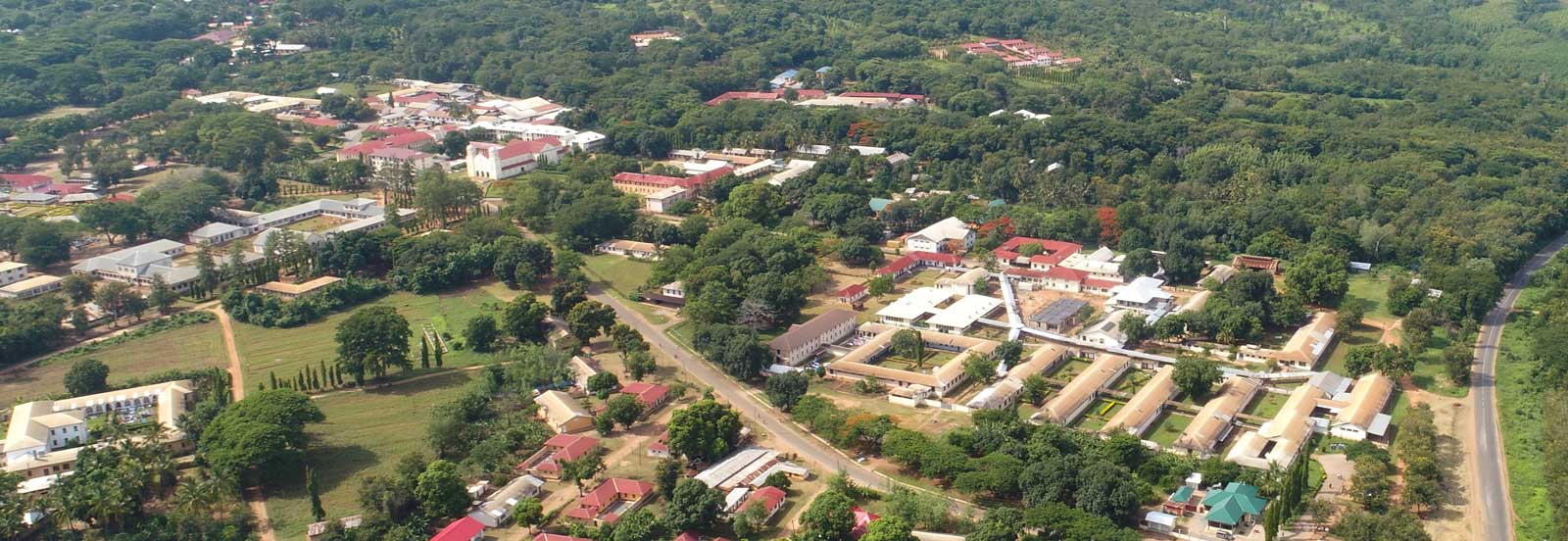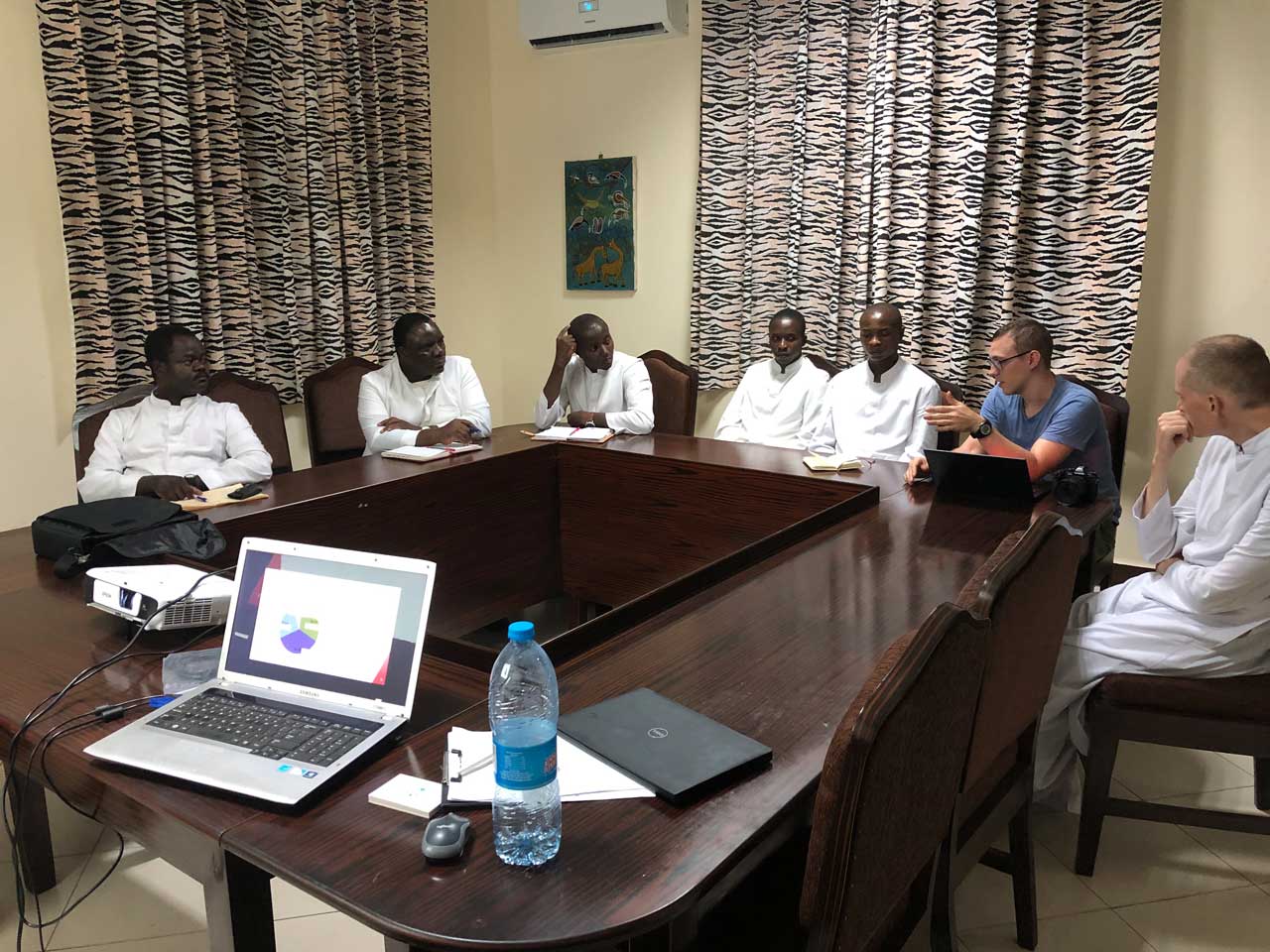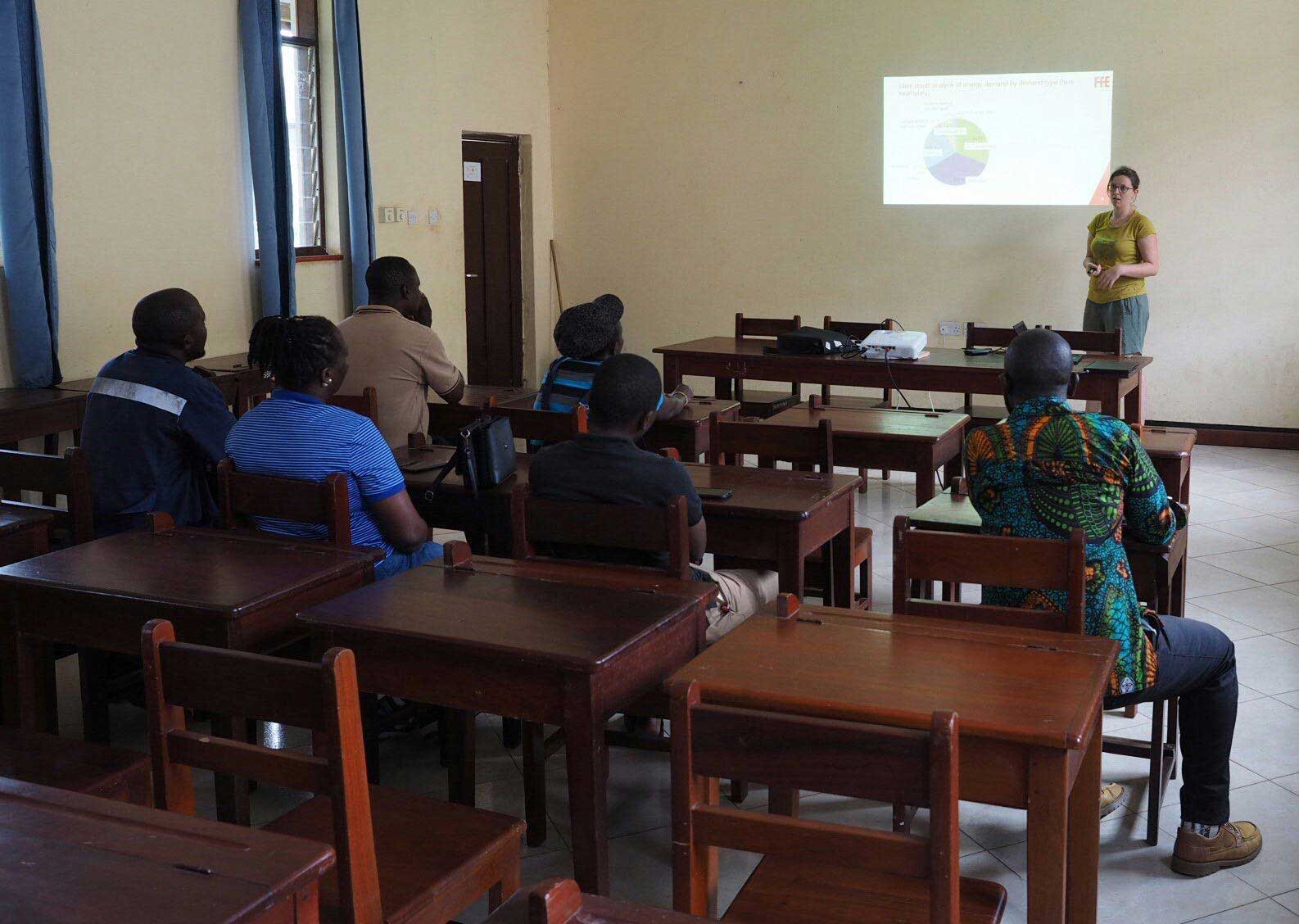Tanzania – Ndanda 2020
Training on efficiency improvement and success factors of energy management in Ndanda (Tanzania)

At the beginning of 2020, the two engineers Britta Kleinertz and Frank Veitengruber were able to carry out a training course and workshops in the south of Tanzania with the financial support of the association for travel expenses.
The power supply for the Benedictine Abbey Ndanda in Tanzania (see figure above) is currently based on the use of a water turbine. Diesel generators are also used during the main working hours. In addition to a carpentry workshop and other workshops of various trades, there is also a hospital on the site, which is why the quality and reliability of supply must be high. Currently, the current energy consumption is being analysed, energy efficiency measures derived and, based on these analyses, an energy supply concept for the site is being drawn up. The main criteria for the future energy supply is that it should be as efficient, reliable and cost-effective as possible.
During the inspection of the abbey site it became apparent that neither energy monitoring is taking place nor the agreement of individual energy managers on site is working. Furthermore, there are no known classical energy efficiency measures that could significantly reduce electricity consumption.
In order for the future and probably more complex energy supply concept in Ndanda Abbey to work, the local employees are the relevant key to success. For this to succeed and for a helpful energy management system to be established, professional training is essential. For this reason, various interest groups in Ndanda Abbey have been trained on success factors for an energy management system as well as efficiency measures and their savings potential in Ndanda Abbey. The participants in the workshops are also entrusted with the training of the electrical specialists of the students and trainees on site and thus serve as multipliers in conveying the contents in accordance with the objectives of the Association for the Promotion of International Knowledge Exchange.
Target group: Management staff of Ndanda Abbey
- Status quo energy supply and problems in Ndanda Abbey
- Opportunities of an energy management system
- Steps to introduce an energy management system
- Tasks of an energy team and criteria for the selection of energy team members
- Data required for the preparation of an energy concept
- Further steps to develop the energy concept for Ndanda Abbey
Target group: Energy managers and lecturers in the training of electrical engineers
- Definition of energy demand types (e.g. final energy, useful energy)
- Types of energy demand (heating, hot water, cooling, electricity)
- Need for measurement for concept development
- Overview of electricity-saving energy efficiency measures (on the consumption, distribution and generation side) using on-site examples
- Opportunities of an energy management system (general and related to Ndanda)
- Tasks of an energy team

In addition to the attendance times in the training courses, simple templates for the introduction and maintenance of an energy management system were created (e.g. protocol template energy team meeting, to-do list, etc.) The main task now lies with the responsible persons in Ndanda to bring them into use.

In retrospect, the training courses were very well received and accepted by the employees on site. This was confirmed, among other things, by the statement of an energy manager with the following sentence: “You opened my mind, regarding the necessity of energy efficiency”.
At the same time, this sentence illustrates the need to continue to train the energy-relevant persons on site. The joint cooperation with the employees on site has already shown that many people are motivated to become intensively involved and thus to improve the energy supply on site. For this reason, further in-depth training courses are planned, for example on energy consumption analysis, energy efficiency measures, photovoltaic systems and the creation and sustainable operation of an energy supply concept.
Britta Kleinertz and Frank Veitengruber will continue to be available to answer questions and support the employees in getting on with the project.
Britta Kleinertz, Frank Veitengruber